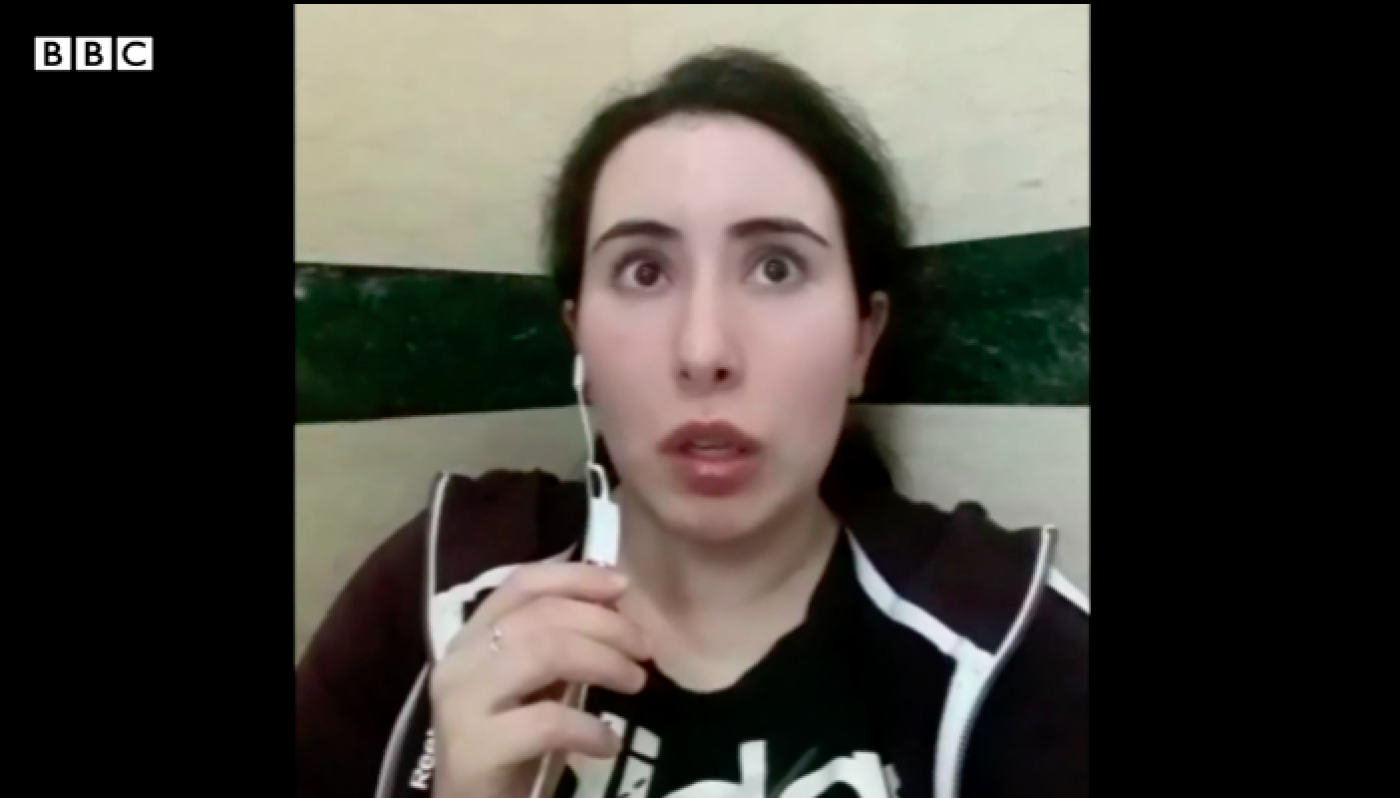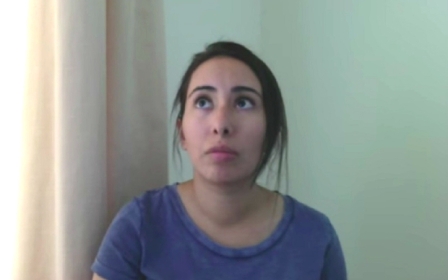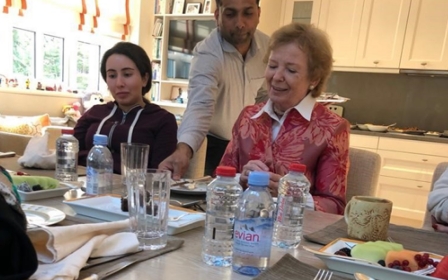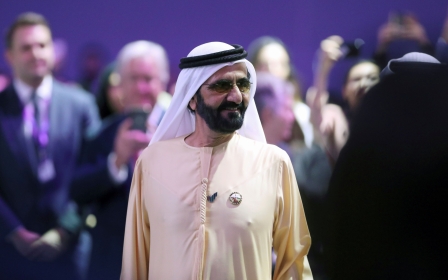UN experts demand release of Dubai's Princess Latifa

UN human rights experts called on the United Arab Emirates to disclose the whereabouts of Princess Latifa two months after the BBC released a video showing the Dubai ruler's daughter saying she was being held hostage by her father.
A joint statement by UN human rights experts, including investigators on torture and violence against women, called for Latifa's immediate release, verification on her whereabouts and details on the conditions of where she is being held.
"We are alarmed that, following the public release in February of footage in which Sheikha Latifa reported being deprived of her liberty against her will, and the subsequent official request for further information on her situation, no concrete information has been provided by the authorities," the UN experts said in a joint statement on Tuesday.
"The statement issued by the Emirates authorities' merely indicating that she was being 'cared for at home' is not sufficient at this stage."
The joint statement comes after the UN said it sought a meeting with the UAE's ambassador over the condition of Dubai's Princess Latifa and her sister Shamsa, a UN spokeswoman said last Friday.
UN human rights spokeswoman Marta Hurtado said at a briefing in Geneva that the organisation was "very worried" about the plight of the women, according to AFP, adding that a meeting between senior UN officials had in principle been agreed.
She added that the UN still hasn't received evidence that Latifa, the daughter of Dubai ruler Sheikh Mohammed bin Rashid al-Maktoum, is alive, despite asking the UAE in February.
'Proof of life'
Earlier this month, the UN Human Rights Office (OHCR), headed by Michelle Bachelet, told Reuters that it had not received "proof of life" for Latifa.
Bachelet's office made the request after the BBC aired a documentary showing new footage of Latifa saying her father was holding her captive.
In February, the UAE said Sheikha Latifa's family was taking care of her at home in Dubai after Bachelet asked for proof of life.
Last year, a British judge ruled that Sheikh Mohammed, who is prime minister and vice president of the United Arab Emirates, kept both his daughters captive and kidnapped the two on separate occasions.
The 35-year-old royal has not been seen in public since she tried to escape from Dubai in February 2018.
In February this year, a letter from Latifa was handed to British police urging them to re-investigate the kidnapping and disappearance of her sister Shamsa in Cambridge in 2000.
Princess Shamsa, now 39, has not been seen in public for two decades since allegedly being abducted in the UK as a teenager by men working for Sheikh Mohammed.
'I'm a hostage, I'm not free'
New footage made public by the BBC showed Latifa describing her detention in clips filmed in secret on a mobile phone.
The princess, who is seen speaking with her back to a wall in a locked bathroom, says: "I'm a hostage, I'm not free. I am imprisoned in this jail. My life is not in my hands."
The emergence of the videos was the latest twist in a string of headline-grabbing stories involving Dubai's ruling family and its patriarch, Sheikh Mohammed, stretching back several years.
In 2018, Latifa escaped Dubai with the help of her friend, a Finnish capoeira instructor, Tiina Jauhiainen. Eight days later, when she had got as far as India's Malabar coast, Indian - then Emirati - forces violently boarded her boat and returned her to Dubai.
In 2019, Jauhiainen was able to sneak a phone to Latifa, who then began covertly filming herself.
"I have been here ever since, for more than a year in solitary confinement," she said in the videos shared with the BBC. "No access to medical help, no trial, no charge, nothing."
The Dubai royal court claimed she is safe and well, but friends say she has had little medical care and went over a year without a toothbrush.
"Her family has confirmed that her highness is being cared for at home, supported by her family and medical professionals," said a statement released by Dubai after the BBC report.
Middle East Eye propose une couverture et une analyse indépendantes et incomparables du Moyen-Orient, de l’Afrique du Nord et d’autres régions du monde. Pour en savoir plus sur la reprise de ce contenu et les frais qui s’appliquent, veuillez remplir ce formulaire [en anglais]. Pour en savoir plus sur MEE, cliquez ici [en anglais].




